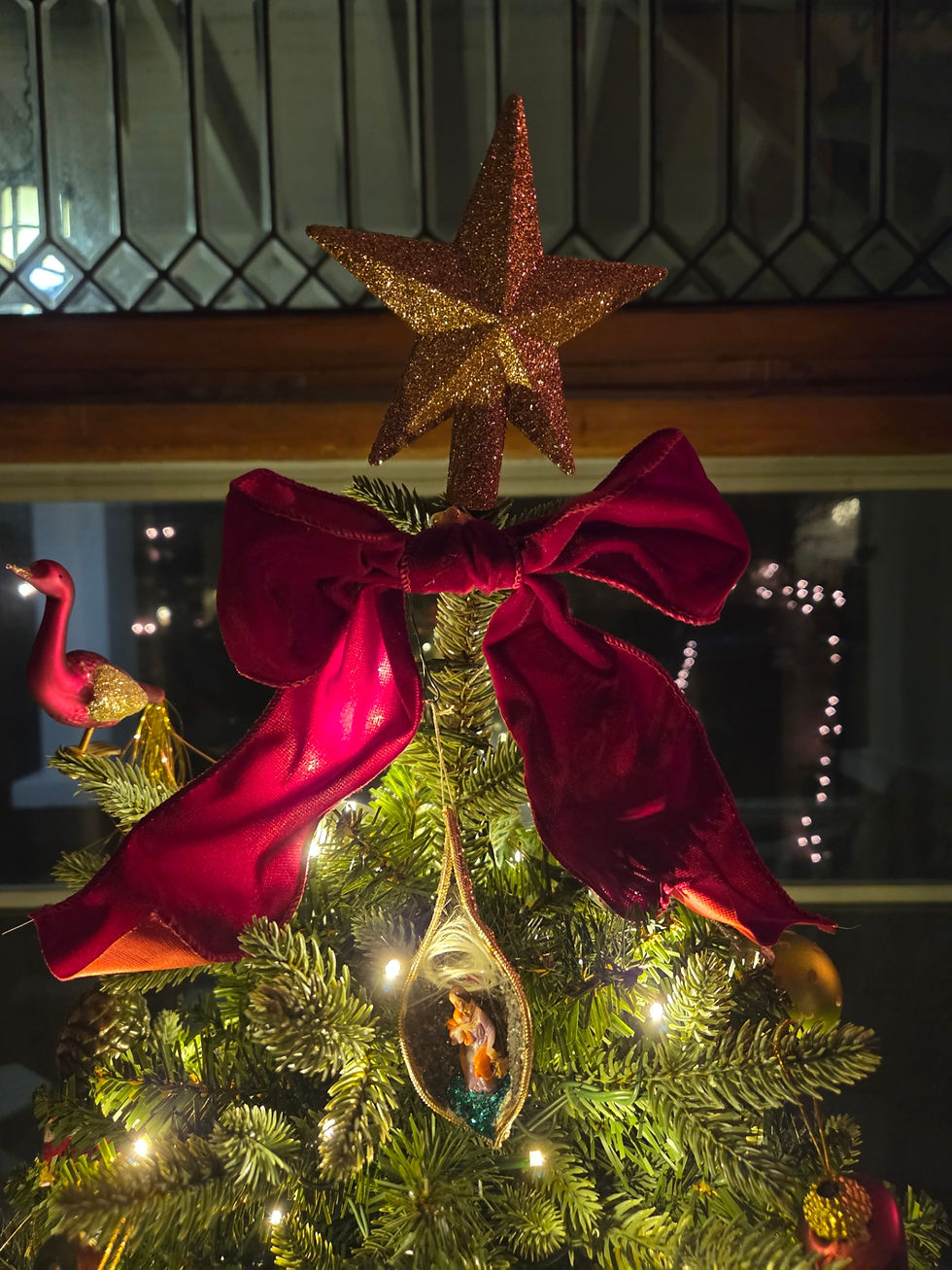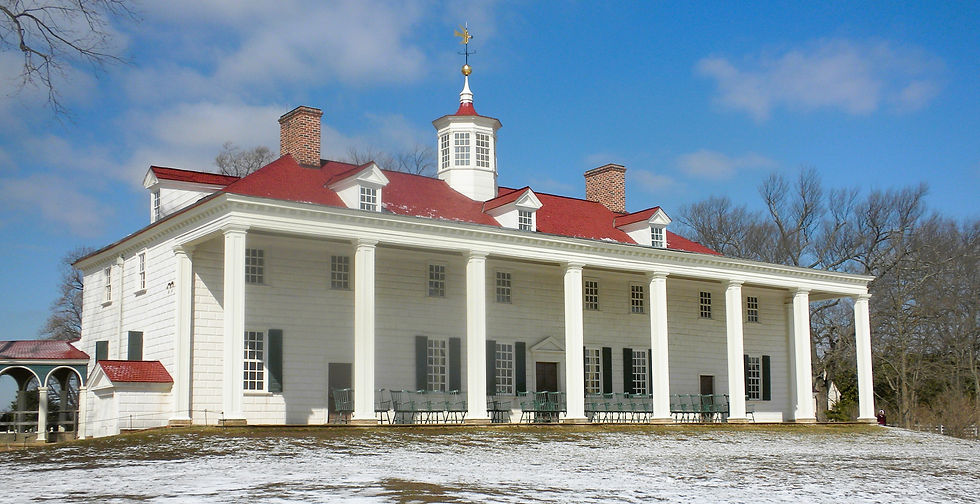Gratitude Friday 10 3 25 - Heroes Gone but to Never Forget
- Bill Stauffer

- Oct 3, 2025
- 5 min read

Last week, I saw a news story about the passing of Lieutenant Colonel George Hardy at age 100. It barely made the news. His is not a name I expect to resonate with any reader here, but it is one we all should. His death was the end of an era. He was an American hero and the last of his kind. Hardy was the last surviving Tuskegee Airman that saw combat in WWII. There are a handful of Tuskegee Airman alive, but none who served in combat in WWII. Hardy was the very last one. I suspect that few younger people even know who and what they were. We need to highlight men and women of history like these ones if we want to sustain the values that have gotten us this far as a nation.
The Tuskegee Airmen were the first Black pilots, navigators, and support personnel serving in U.S. military aviation. They served with distinction during World War II, earning a reputation for escorting bombers in Europe and losing fewer escorted bombers than any other fighter group. They were termed the Tuskegee airmen because their primary training base was Tuskegee Institute, in Alabama. Prior to then, there were no black pilots or aviation support personnel. Most black people who served were in the infantry, not in more trained positions. On January, 16th 1941, Secretary of the Army Henry L. Stimson authorized the formation of a black pursuit squadron. The 99th Pursuit (later Fighter) Squadron was activated in March 1941 and began training in separate facilities at Tuskegee, Alabama, on 15 November 1941, three weeks before Pearl Harbor. In 2007, the surviving airmen were awarded the Congressional Gold Medal pictured above.

Segregation was the norm in those days, and many wanted to see these men fail. Black people flying planes made people uncomfortable in that era. Sadly, we still see instances of that kind of ignorance in our society, but at the least we see it at significantly lower rates than in the early 1940s. Born in Philadelphia PA, George Hardy was the youngest Tuskegee Airman. He joined the Army Air Corps at age 17 and went to train in Biloxi MS. He earned his wings and piloted a P-51D Mustang as bomber escort of B-17 and B-24 heavy bombers to their targets for 21 combat missions over Europe. He piloted a B-29 for 45 combat missions over Korea and then 70 combat missions piloting an AC-119K gunship during the Vietnam war. After retiring from the military at the rank of Lieutenant Colonel, he traveled the country telling the story of the Tuskegee Airmen and their fight against racial prejudice. An interesting note I found is that his P-51 that he flew in WWII was restored, is airworthy and is in England. I found a photo of his plane, “Tall in the Saddle” included in this post.
Years ago, I believe I heard Lieutenant Colonel Hardy speak about his experiences when groups of the airmen were in Allentown Pennsylvania. I do recall the group speaking about how difficult they had things, not just because of combat but of prejudicial attitudes in our nation at that time. They piloted the most sophisticated planes we had in are arsenal, but they were denied basic freedoms here at home. I wish I could recall which Airman said it at the time, but during that visit to Allentown, someone from the audience asked these heroes why they signed up to fight for freedom even as they faced discrimination here in the USA. The answer I will recall as long as I live. The Airman who answered the question said he believed in our aspirations of freedom even as we were not living up to them and he risked his life for that not fully realized American value. The other airmen present nodded in affirmation. That is the nation I love.
They represented the very finest of what this nation has to offer. While I was thinking about the example of Lieutenant Colonel Hardy, I also recalled a book I read a number of years ago about Jesse Brown, the first black pilot in the US Navy. On December 4, 1950, Brown's F4U Corsair was hit by Chinese infantry ground fire during a mission over the Chosin Reservoir in North Korea. He was forced to crash-land behind enemy lines and was trapped in the wreckage. His wingman, a white man, Tom Hudner intentionally crashed his own plane in an attempt to save Brown's life. The book was made into a movie of the same title, "Devotion." Jesse Brown was born in Hattiesburg, Mississippi in 1926. His parents were sharecroppers and he had limited access to even a basic education. In the book, he talked about seeing a plane fly over a field he was working in as a child laborer and saying to himself that he was going to be a pilot. Consider what must have transpired for a dirt poor black child with very limited access to education or opportunity in the 1930s deep south to eventually climb into the pilot seat of a US Navy Corsair. The human spirit can be nearly unstoppable.
I will point out the obvious here, America in the 1940s and 1950s were not era we should be proud of in respect to how black people were treated. I am not sure what other readers of such history take away from these examples, but one of the things I see is that the human spirit can endure significant hardships and these heroes’ set examples for our whole society. A US military training video was briefly removed in January 2025 as we revise uncomfortable chapters out of our own history. Public outcry had it restored. To date, their contributions remain recorded in our museums. The fact that they may be removed because some may be uncomfortable with our history is more than tragic, it represents to me a shift away from our values. We should not backslide on our freedoms, and we cannot live up to our aspirational values if we fail to take account of our past.
I am grateful I heard these airmen speak years ago in Allentown before they were all gone. I am grateful for what they represent to our nation. They are examples for us all to do and be better despite what is occurring around us. They remain heroes we should never forget. I will not forget them. Thank you for your service to our nation, Lieutenant Colonel Hardy, may you rest in peace.
What are you grateful for today?










Comments